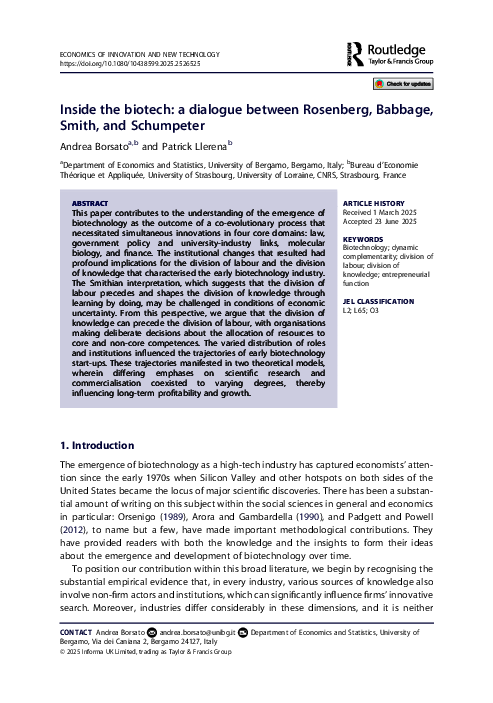ABSTRACT
This paper contributes to the understanding of the emergence of biotechnology as the outcome of a co-evolutionary process that necessitated simultaneous innovations in four core domains: law, government policy and university-industry links, molecular biology, and finance. The institutional changes that resulted had profound implications for the division of labour and the division of knowledge that characterised the early biotechnology industry.
The Smithian interpretation, which suggests that the division of labour precedes and shapes the division of knowledge through learning by doing, may be challenged in conditions of economic uncertainty. From this perspective, we argue that the division of knowledge can precede the division of labour, with organisations
making deliberate decisions about the allocation of resources to core and non-core competences. The varied distribution of roles and institutions influenced the trajectories of early biotechnology start-ups. These trajectories manifested in two theoretical models, wherein differing emphases on scientific research and
commercialisation coexisted to varying degrees, thereby influencing long-term profitability and growth.
Published online: 09 Jul 2025 in Economics of Innovation and New Technology
DOI: 10.1080/10438599.2025.2526525



